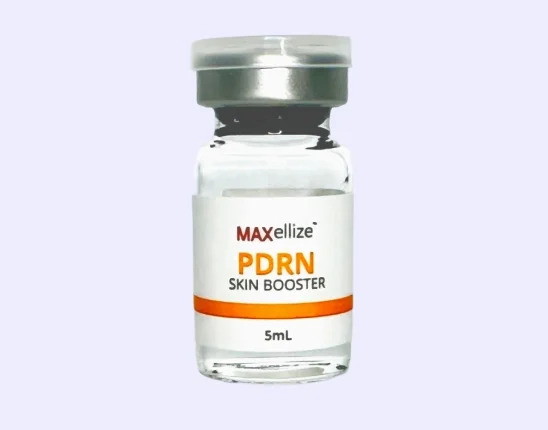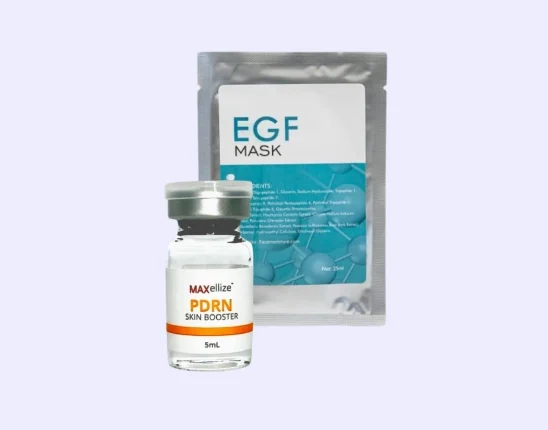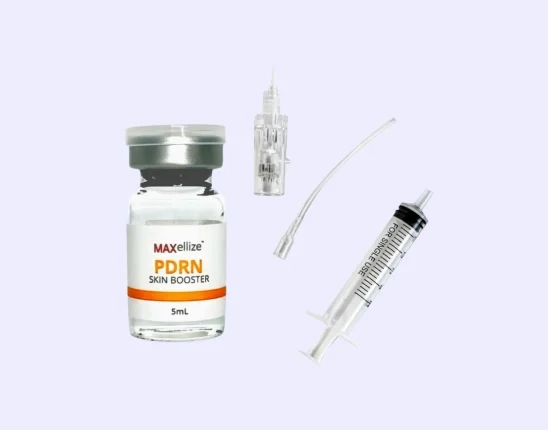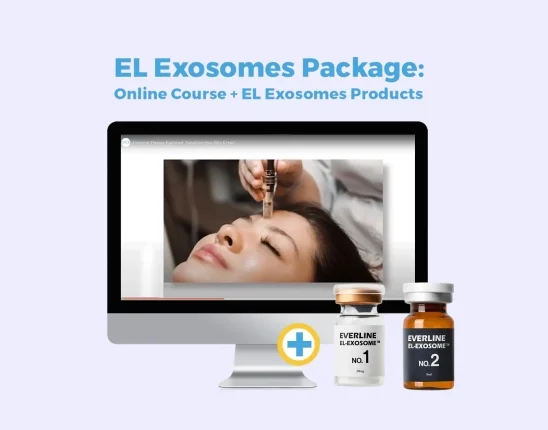The human transforming growth factor-beta 1 is a pleiotropic cytokine that plays a crucial role in the body’s healing process, angiogenesis, immune system, and human diseases. This growth factor is created by the immune system and functions as an anti-inflammatory cytokine and regulates immune responses throughout the body.
So what do tests that look for human transforming growth factor-beta 1 indicate? While having a normal level of human transforming growth factor-beta 1 indicates a healthy immune system, high levels of this growth factor can indicate several diseases and conditions like, chronic inflammatory response syndrome, cancer, tumor cells, fibrosis, and many more. Testing your human transforming growth factor-beta 1 levels regularly could help catch their diseases early and treat them before they progress into the more severe later stages.
What Does The Human Transforming Growth-Factor Beta 1 Indicate?
Human transforming growth factor-beta 1 indicates a naturally produced growth factor that is released by the immune system of the body to aid in the body’s natural healing process. When testing for human transforming growth factor-beta 1 in the human body, having low and high levels of the growth factor are linked to chronic and serious diseases.
While the research behind this growth factor and how to control it is still very limited, it has been shown to have negative effects on the body when not regulated properly. Here are some common diseases indicated by low and high levels of human transforming growth factor-beta 1:
1) Conditions that May Be Indicated or Affected By High Levels of Human Transforming Growth Factor-Beta 1
Like any chemical imbalance in the body, having too much concentration of human transforming growth factor-beta 1 can lead to several complications and even speed up the progression of some pre-existing illnesses.
This could be due to several factors ranging from the proliferation of cells or the inflammatory properties of the growth factor. In many cases, the growth factor will simply signal for cell growth regardless of what type of cell it is.
This is particularly dangerous when trying to keep certain diseases from progressing like cancer and fibrosis favoring fast cell growth.
Fibrosis
In addition to bone healing issues, high levels of human transforming growth factor-beta 1 may indicate types of fibrosis like lung fibrosis or interstitial fibrosis in the body. Fibrosis is a complex disease that is caused by excessive tissue deposition due to extracellular matrix (ECM) components.
This can cause an abundance of epithelial cells, mesothelial cells, mesangial cells, endothelial cells to be overproduced causing interference in the body’s natural healing process and cell production.
With normal levels of human transforming growth factor-beta 1, ECM is actually regulated and controlled effectively in the body preventing fibrosis. However, when human transforming growth factor-beta 1 concentration increases, ECM components increase as well causing excessive fibroblast and myofibroblast cell proliferation.
When a patient experiences long-term elevations of human transforming growth factor-beta 1, should seek medical treatment immediately to prevent fibrosis and subsequent damage to organs.
Progression of Cancer and Tumor Growth
An excess of human transforming growth factor-beta 1 has been shown to cause and favor the progression of all types of cancer like, colorectal cancer, prostate cancer, and breast cancer in the body.
While the effect of TGF-β1concentrations is context-dependent when it comes to cancer there will be adverse effects either way. With the signal for cell proliferation caused by human transforming growth factor β1, cancerous tumor cells can grow faster and lead to the faster progression of cancer.
According to studies, this is caused by the human transforming growth factor-beta 1 signaling pro-oncogenic functions in the body regardless of the cell type. This could have adverse effects on the progression of tumor growth and accelerate the stage of disease the patient is in causing premature death.
Bone Conditions and Injuries
Human transforming growth factor-beta 1 is usually beneficial to the repair of bone tissues and cells when fractured. However, if you have high concentrations of human transforming growth factor-beta 1 it may indicate a longer recovery time following your injury.
High levels of human transforming growth factor-beta 1 have been shown to have a negative effect on bone healing due to cell motility and its circulation in the bloodstream throughout the area.
Rather than speeding up the healing process as most growth factors do, high concentrations of human transforming growth factor-beta 1 will actually delay the healing process. If you have pre-existing bone conditions, having an excess amount of human transforming growth factor-beta 1 could also worsen the condition and lead to permanent damage to your skeletal system.
Arthritis
While the relation between high levels of human transforming growth factor-beta 1 and arthritis has been primarily studied in mice and rats, it could also cause arthritis in humans. Due to the inflammatory properties found in the IL-6 T helper 17 (Th17) cells when linked to human transforming growth factor 1, having high concentrations of the growth factor could cause severe swelling in the joints and tendons of a human. It could potentially also worsen any pre-existing arthritis conditions but aggravate the swelling in the area.
2) Conditions that May Be Indicated or Affected By Low Levels of Human Transforming Growth Factor-Beta 1
While you may think that since having human Transforming Growth Factor-Beta 1 in your body is a bad thing, having lower levels could be a healthier option. However, not having enough of the transforming growth factor-beta 1 in your body could also lead to severe complications.
Without the growth factor signaling for anti-inflammatory responses, you could possibly develop several infections. Additionally, while an abundance of the growth factor can cause cancer, its absence can also contribute to tumor growth. From CIRS disease to different types of cancer, low levels of human transforming growth factor-beta 1 will also cause several health issues if left untreated.
Chronic Inflammatory Response Syndrome
While having high levels of TGF-β1 can cause quite a few negative effects, having too low of a TGF-β1C concentration can lead to chronic inflammatory response syndrome (CIRS). CIRS is characterized as a progressive inflammatory disease that can affect multiple organs in the body.
In CIRS patients, inflammation is often caused by biotoxins from bacteria and fungal infections from within the body due to microbial growth. If left untreated, CIRS can be a debilitating disease that affects the patient’s quality of life and cause serious damage.
Though CIRS is not directly caused by low levels of TGF-β1, not having enough of the growth factor could contribute to the improper regulation of the inflammation caused by the condition.
Cancer Cell Proliferation
While having too many growth factors can lead to tumor progression, having low levels of TGF-β1 concentration can also lead to the development of tumor cells.
In biology studies, this is called the TGF-β Paradox tumor paradox as having low and high concentrations of TGF-β play a dual role in cancer and tumor progression depending on cellular response.
In this scenario, the levels of TGF-βcould be used as an indicator of cancer but would lead to a poor prognosis in patients as both high and low TGF-B1 concentrations could indicate cancer progression.
Inflammatory Bowel Disease
Another commonly associated disease indicated by low levels of human transforming growth factor-beta 1 is inflammatory bowel disease. Inflammatory bowel disease is characterized by the inflammation of the gastrointestinal tract.
While this is a recurring illness that can be managed, severe cases and prolonged periods of inflammation can cause permanent damage to the gastrointestinal system. Having low levels of human transforming growth factor-beta 1 can worsen inflammatory bowel disease due to the fact that your body is unable to produce enough anti-inflammatory responses in order to prevent Inflammatory bowel disease.
While the transforming growth factor beta 1 still needs further substantial research, the available preclinical studies show great promise in addressing the need to better understand TGF-β1 concentration levels and how they can be managed to improve human health.
With several case studies on PubMed Central and control subjects experiencing antifibrotic effects, inhibitory effects, antiproliferative effects during experiments, the ability to manage transforming growth factor beta 1 will soon be more accessible to people.
How Do You Detect Transforming Growth Factor Beta 1
Detecting human transforming growth factor-beta 1 level is not the simplest thing to do but there are a few methods being studied to get a more accurate reading of these growth factor levels in the body.
Using transgenic mice, scientists have used fluorescent proteins to visualize TGF-β elements. While not yet applicable to humans, it’s considered one of the more common strategies in assessing active TGF-β1 concentrations. Additionally, bioassay methods have been shown to be a viable option in detecting active transforming growth factor-beta 1 in tissues cells, organs, and human serum.
With the development of human transforming growth factor-beta 1 detection procedures, scientists hope to not only gain a deeper understanding of the relation between transforming growth factor-beta 1 and various diseases but also help manage these illnesses more effectively.
With the human transforming growth factor-beta 1 functioning as a pleiotropic cytokine, understanding and controlling this growth factor could be vital in supportive and curative medicine.
Studies on Managing Human Transforming Growth Factor-Beta 1 Level
Like other types of growth factors, human transforming growth factor-beta 1 needs studies to back it up. Some things that are being studied include the intradermal injection of transforming growth factor-beta 1 gene and large molecule inhibitor application.
1) Intradermal Injection of Transforming Growth Factor-Beta 1 Gene
Like other growth factors, the medical field has been doing additional studies on intradermal injections in relation to human transforming growth factor-beta 1 and its benefits to the human body. Currently, studies have only been tested on animal models, particularly in nude mice.
While still in preclinical studies, transforming growth factor-beta1 injection has shown great promise in boosting growth factor levels and enhancing the healing process in mice. With promising results, injections could be a viable option for increasing and balancing transforming growth factor-beta 1 level in humans with low levels of the growth factor.
2) Large Molecule Inhibitor Application
Like injection therapy, large molecule inhibitors are in the preclinical stages of research and are currently being studied in animals. In these studies, it has been shown that therapeutic practices involving the use of monoclonal antibodies can have an inhibitory effect on TGF-β1 signal pathways.
The monoclonal antibodies have been found to prevent the binding of TGF-β to receptors and shut down signals it releases to parts of the body. This could help treat autoimmune diseases and late stages of cancer as it will prevent TGF-β activation that promotes the progression of the disease.
Additionally, soluble receptors for cell growth inhibition have been found to be a viable alternative to monoclonal antibodies in animal models. Like the monoclonal antibodies, soluble receptors can block the pathways of TGF-β signals and have antiproliferative effects on cancer cells in the experimental model.
Purchase Medical Tools and Supplies at FACE Med Store
While the effects of the human transforming growth factor-beta 1 is still in its pilot study, managing its concentrations in the body does show clear relation in addressing autoimmune diseases and cancer in humans. More scientists have been working on a therapeutic target for human transforming growth factor-beta detection and medicine. With the additional studies to be conducted, top-quality tools and devices will be needed to ensure that the developed methods and drugs don’t have pleiotropic effects.
At FACE Med Store, our team of experts understand the crucial role and effect quality tools and supplies can have not only on the doctors especially in the early stages of research. Having the correct tools can lead to a more accurate prognosis in patients as well as validating medical findings for future studies. We offer the best medical devices and equipment at reasonable wholesale prices to clinics, research facilities, and regular clients as well across the country. If you’re in search of a particular device or tool, contact us today to see our stock list.
Learn More: What Do Hematopoietic Growth Factors Do?















